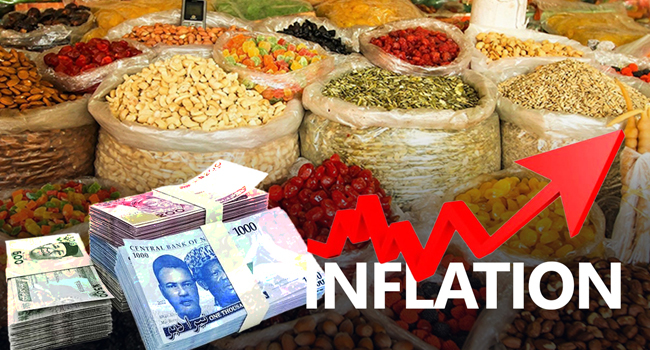Food Inflation Slowing, FG’s Revenue Up, Economy in the Right Direction—Edun
The new government’s initiatives have begun to reduce food inflation, according to Wale Edun, Nigeria’s minister of finance and coordinating minister of the economy. Edun claims this is a positive sign for the country’s economy.
Tuesday, while in Washington, DC, attending the IMF-World Bank Spring Meetings, the minister gave a virtual speech on the Business Incorporated project.
According to Edun, he and Olayemi Cardoso, the governor of the Central Bank of Nigeria (CBN), are in Washington, DC, to exhibit the accomplishments that the Nigerian economy has accomplished thus far.
“The Economic Team of President Bola Ahmed Tinubu is here to display the progress so far of his bold, daring, and strategic reforms of the Nigerian economy in order to stabilise it and get investment in it to start it growing again,” the minister of finance stated when asked about the current state of the country’s economy.
Everyone is aware of the positive developments in terms of inflation and the stabilisation of the exchange rate.
Things are heading in the right direction; government revenues are up; even oil revenues are up, but not to the extent that we would like; and if you examine the figures that were released yesterday (Monday), you will observe that the pace of increase of food inflation is reducing.
The present government’s twin policies—the elimination of petrol subsidies and the unification of FX windows—have caused food and basic commodity prices to skyrocket in recent weeks, plunging Nigerians into one of the country’s most severe economic crises.
Nevertheless, according to Monday’s National Bureau of Statistics (NBS) Consumer Price Index (CPI) data, food inflation decreased by 0.17% from 3.79% in February 2024 to 3.62% in March 2024. However, compared to 24.45% in March 2023, food inflation in March 2024 was 40.01%, a rise of 15.56 percentage points, according to the research.
The National Bureau of Statistics (NBS) reported, on the other hand, that headline inflation in Nigeria was 31.70% in February 2024 and 33.20% in March 2024.
Food items like garri, millet, yam, and bread, as well as electricity and housing expenses, contributed significantly to the inflation for March 2024.
After the Nigerian interest rate was raised from 22.75% to 24.75% by the apex bank’s Monetary Policy Committee (MPC), the NBS released its inflation report.
Interestingly, the apex bank’s efforts to fortify the naira against foreign money have yielded some good benefits, coinciding with the release of the March inflation number.
N1,900/$ is presently at N1,100/$1, a gain of nearly 40% as the naira has strengthened vs the dollar in the past several weeks.
Nigerians are holding out hope that the cost of living will drop significantly when the naira recovers, but so far, this has not happened.




